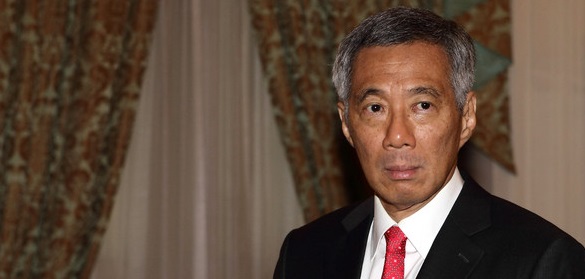~By: Kumaran Pillai~
We do it better. I used to sing to that when I was a kid – “good, better, best. Never let it rest.” After singing it a dozen times, I belived it, wholly.
Despite the lack of natural resources, Singapore has done well. Our pride grew with our strides of progress; we were almost invincible. My friends used to boast about how progressive we are compared to the Malaysians. In fact, major economic indicators still show that we are better off than our neighbours.
At the recent book launch, Luis Benveniste, Sector Manager for Education in East Asia and Pacific at the World Bank introduced the book, “Some Small Countries Do It Better.” He was accompanied by Shahid Yusuf, Economic Adviser and Kaoru Nabeshima, Director of Technological Innovation and Economic Growth Studies Group, Institute of Developing Economies presented key findings from their book. The panel also comprised vice president of the Economic Society of Singapore Yeoh Lam Keong, and Associate Editor of The Business Times Vikram Khanna. Professor Tommy Koh Ambassador-At-Large at the Ministry of Foreign Affairs moderated the panel.
According to a report on Chinapost:
The ‘Sifire’ countries also managed to achieve deep-seated consensus among businesses, political leadership and citizenry on economic growth strategy. This single-mindedness — and lack of labour disputes — powered the three (Singapore, Ireland and Finland) to rapid, sustained growth of the sort that is rare among others their size.
…
Vikram said Singapore has a worrying lack of home-grown technology giants, unlike Finland, which has produced both Nokia and the Angry Birds game. Local innovators have, thus far, little to show for heavy government investment. They have failed in commercializing their products, not in creativity per se, he said, citing local firms that came up with versions of the iPod and USB flash drive first.
Yeoh argued that Singapore's rapid growth over the last 10 years has been due to traditional reasons — an influx of foreign labor — rather than a new model, as the book authors posit (assume). This contrasts to Finland, whose labor supply stagnated while its productivity grew, he said.
…
Swiss ambassador Jorg Reding protested against the authors' implication that strong government is crucial for success. Bert Hofman, director of the World Bank's Singapore office agreed. He said those who argue that authoritarian government can lead to economic success cite Singapore, but not Zimbabwe, or Uganda.
In the past, it is one thing that is always left out in these economic forums, the fact that Singapore fares poorly in the world ranking for political freedom. Very few people were comfortable talking about it. Freedom House has ranked Singapore 5 out of 7 for political freedom (where 1 is the most free). It is not that bad given that we have more political freedom than Afghanistan, China, Vietnam and North Korea to name a few. However, the lack of political freedom, civil liberties and grow-at-all-costs economic model seems to be debated quite openly these days.
According to some experts, Singapore faces three key challenges that may threaten its sustainability: the need for inclusive growth, good governance and political freedom. It is not enough for Singapore to merely achieve higher economic growth. The world will not admire us unless its growth is accompanied by equity, unless the balance between development and political competition is restored, and unless Singapore embraces free speech.
There are things that the world does not see, like the poor man sleeping on the bench. We are purely judged by statistics and indexes and it is good to see the likes of Vikram Khanna and Yeoh Lam Keong stand up for the common man.







